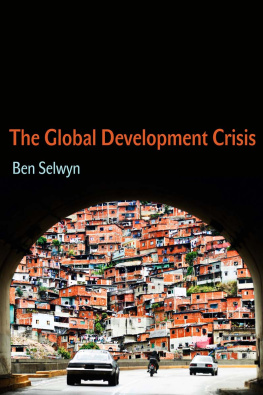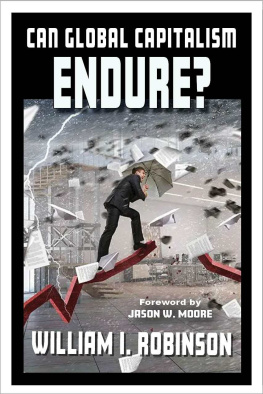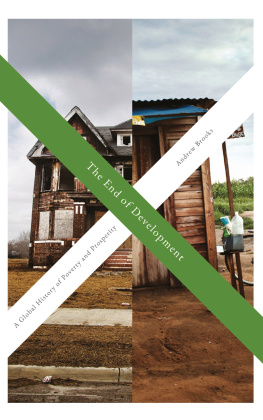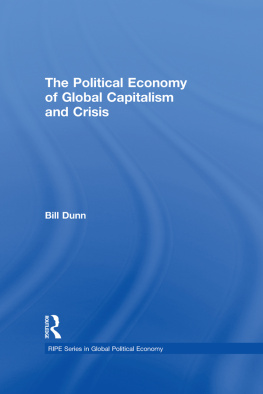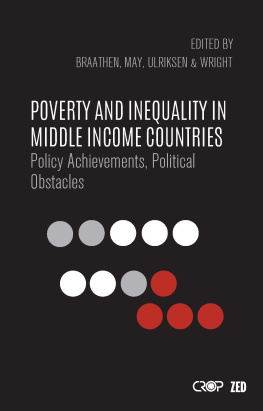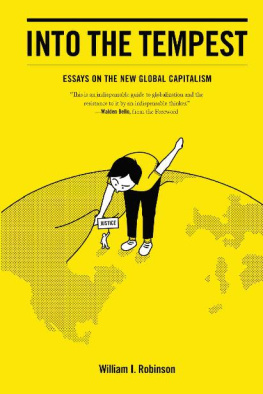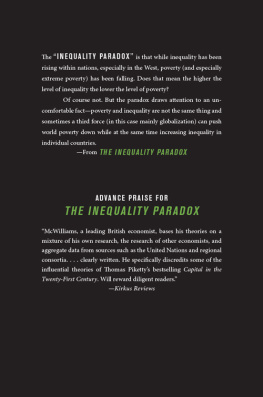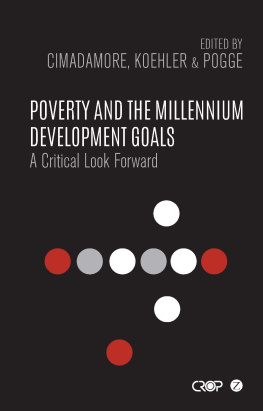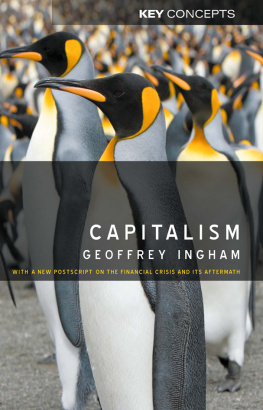THE GLOBAL DEVELOPMENT CRISIS
Copyright Ben Selwyn 2014
The right of Ben Selwyn to be identified as Author of this Work has been asserted in accordance with the UK Copyright, Designs and Patents Act 1988.
First published in 2014 by Polity Press
Polity Press
65 Bridge Street
Cambridge CB2 1UR, UK
Polity Press
350 Main Street
Malden, MA 02148, USA
All rights reserved. Except for the quotation of short passages for the purpose of criticism and review, no part of this publication may be reproduced, stored in a retrieval system, or transmitted, in any form or by any means, electronic, mechanical, photocopying, recording or otherwise, without the prior permission of the publisher.
ISBN-13: 978-0-7456-8106-1
A catalogue record for this book is available from the British Library.
The publisher has used its best endeavours to ensure that the URLs for external websites referred to in this book are correct and active at the time of going to press. However, the publisher has no responsibility for the websites and can make no guarantee that a site will remain live or that the content is or will remain appropriate.
Every effort has been made to trace all copyright holders, but if any have been inadvertently overlooked the publisher will be pleased to include any necessary credits in any subsequent reprint or edition.
For further information on Polity, visit our website: www.politybooks.com
CONTENTS
FIGURES AND TABLES
Figures
Global Income Distribution by Quintiles of the Population in 2007 (or latest available) in PPP constant 2005 International dollars
Schumpeters Entrepreneurial Profits, Rents and Normal Business Profits
Surplus and Normal Profits Relative and Absolute Surplus Value
Marx and Schumpeter on Core and Periphery
Markets as Spheres of Freedom
Anti-Capitalist Struggles as Process of Development
Conceptualizing Labour-Centred Development
Tables
Key Thinkers in the Political Economy of Development
Class Struggles and Divergent Human Development
Gerschenkronian Institutional Innovations and Late Industrialization
GNP per capita for a Region as a Percentage of the Cores GNP per capita
Industrial Innovations and Class Relations
Industrial Consolidation within Global Value Chains, 20068
Marx and Polanyi: Key Ideas Concerning Capitalism
Key Thinkers in the Political Economy of Development and their Relation to Labour
ACKNOWLEDGEMENTS
This book is a collection of essays and something greater. It is a collection of essays because sections of the core chapters have been written or published previously as individual articles. It is more than a collection because I have modified every chapter from the original article, and I have added substantial additional chapters. My hope is that while each chapter can stand alone, together they provide a more integrated argument about processes of development under, against and potentially beyond capitalism.
Each chapter engages with fundamental themes in development studies. The difference between this work and other books that discuss theories of development is that I engage critically and hopefully creatively with rival theories, from the perspective of labour, derived from Marxian political economy.
The chapters in this book draw upon and develop arguments previously published. Part of was published in Economic and Political Weekly, volume 46, 2011).
In the writing of this book I have incurred many intellectual debts. First and foremost, I wish to thank my colleagues in the Historical Materialism World Development Research Seminar (HMWDRS) who have provided a brilliant forum for thinking through and applying Marxist political economy to questions of development: Elena Baglioni, Liam Campling, Gavin Capps, Owen Miller, Jonathan Pattenden, Jeff Webber and, in particular, Satoshi Miyamura, with whom I wrote an earlier draft of and commented on parts of this book. They include Tom Selwyn, Kamran Matin, Kees van der Pijl, Justin Rosenberg, Earl Gammon, John Glenn, Andy Mason, Chris Armstrong, Tony Evans, Ben Fine, Dimitris Milonakis, Cris Kay, Demet Dinler, David Blaney, Knud Erik Jorgensen, Colin Barker, Marcus Taylor, Lucia Pradella and Sandra Halperin. In developing my ideas I have benefited enormously from being a member of the Centre for Global Political Economy and the department of International Relations at the University of Sussex. I owe a long-standing political debt to Mike Pany, George Roe and Martin Chapman. I thank David Held, Susan Beer, Jennifer Jahn and Elliot Karstadt at Polity for supporting this project. A huge debt of thanks, as always, to my wife Mjriam, who read much of this book and suggested ways of clarifying my arguments. Finally, I dedicate this book to Henry Bernstein teacher, friend and colleague who has taught me so much about political economy.
THE GLOBAL DEVELOPMENT CRISIS
The central paradox of the contemporary world is the simultaneous presence of wealth on an unprecedented scale, and mass poverty. Liberal ideology and practice, as propounded by international financial institutions (IFIs) and heads of trans-national corporations, state leaders and their intellectual supporters explains the relationship between capitalism and poverty as one based around the dichotomy of inclusion (into capitalism) vs exclusion (from capitalism). The global capitalist system, or the world market or the free market, is portrayed as a sphere of economic dynamism, an arena where freedom to exchange prevails, and as a source of developmental opportunities for less developed countries.
Within such explanatory frameworks poor countries and their populations are held to be poor not because of the nature of the capitalist world system, but because of their effective exclusion from it. Policies such as trade liberalization and the deregulation of markets (in particular financial, commodity and labour markets) are designed to remove state distortions, and thus enable poor countries to harness the dynamism of the market. An example of this way of thinking is provided by Anthony Giddens, who argues that the main problems experienced by poor countries dont come from the global economy itself, or from the self-seeking behaviour on the part of the richer nations. They lie mainly in the societies themselves in authoritarian government, corruption, conflict, over-regulation and the low level of emancipation of women (Giddens 2000, 129). In this way of thinking the world market is often portrayed as a ladder (of opportunity and wealth), where, once on the bottom rung, poor countries have the possibility of climbing further up and, by doing so, accelerating the human development of their population.
The ideological appeal of the residualist discourse to defenders of neoliberal globalization should be clear. It shifts our focus away from investigating how a particular type of economic system (capitalism) simultaneously generates poverty and wealth. It reframes the debate around the axiom that capitalism must, by definition, provide the solutions to the worlds poor, and that therefore, the problem of development is not the capitalist system itself, but exclusion from it. Through this discursive act capitalism remains a pristine non-object of analysis (Wood 1991, 111).

